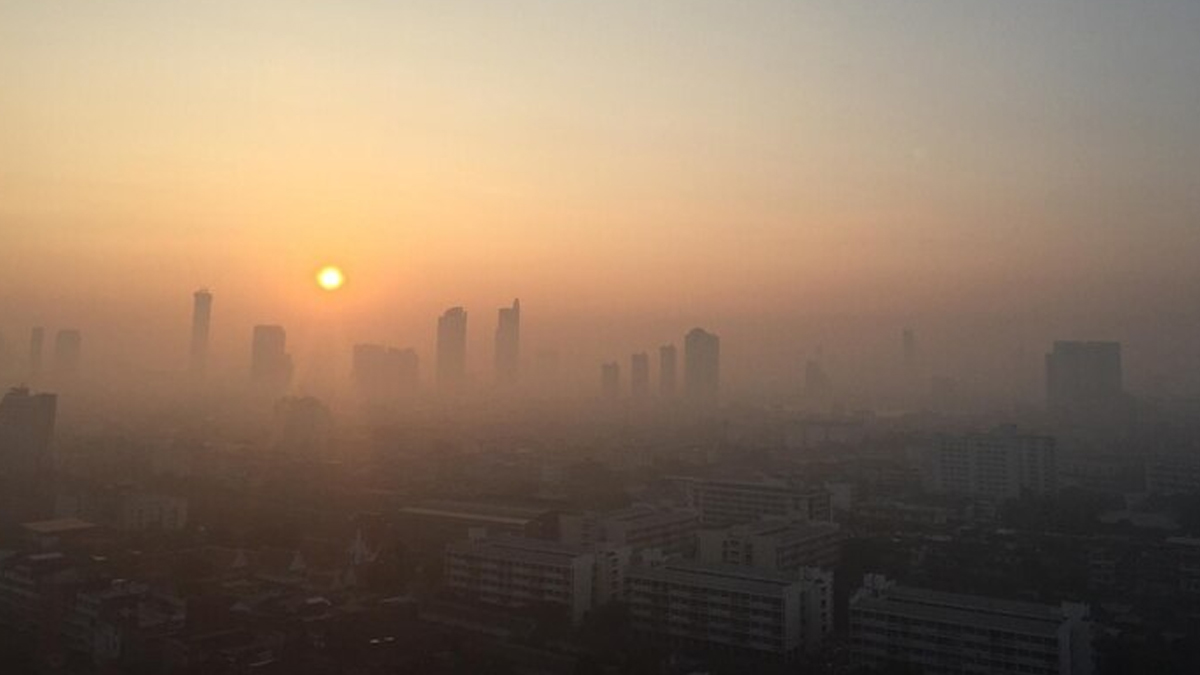
It is not a new finding that air pollution damages your overall health. However, air pollution has far reaching effects beyond respiratory disorders, poor skin and hair health, and heart disease. It can seriously disrupt reproductive health and according to studies, it is also causing young girls to get their first periods earlier.
Table of Content:-
A collaborative study by researchers from Emory University Rollins School of Public Health, Harvard Medical School, and Harvard TH Chan School of Public Health followed 5,201 girls aged 10–17 years through surveys from 2004, 2006, and 2008. They concluded that exposure to fine Particulate Matter (PM2.5) during childhood and as fetus in utero caused the girls to start menarche earlier.
Here’s why you should be concerned about this link. The earlier onset of menarche, or the age when girls get their period for the first time, is a public health issue that has been associated with breast and ovarian cancer, obesity, type 2 diabetes, and heart disease.
To understand how air pollution is reducing the age of menarche, the Onlymyhealth team spoke to Ashwin Bhadri, Founder and CEO, Equinox Labs.
How Air Pollution Reduces The Age Of Menarche
The health and development of women going through puberty are crucial as it has a significant impact on a girl’s physical and emotional development. “Typically, girls begin menstruating between the ages of 10 and 15, with the average age being around 12. However, researchers have noticed a trend where girls in areas with higher air pollution levels are starting their periods several months to a year earlier than this average,” said Bhadri.
Another study conducted in Poland from 2015 to 2018 found that girls exposed to higher levels of suspended PM and nitrogen had a higher risk of starting menstruation before age 11.
So, how exactly is air pollution linked to this earlier onset of puberty? Bhadri said, “A higher exposure to PM2.5 meant higher exposure to harmful chemicals that were mimicking oestrogen or disrupting the reproductive system.” According to him, the connection lies in how certain pollutants interact with our bodies:
- Endocrine Disruptors: Many air pollutants act as endocrine disruptors. These are chemicals that can interfere with our hormone systems. In girls, they can mimic oestrogen, potentially triggering earlier puberty.
- Stress On The Body: Constant exposure to air pollution puts stress on the body. This stress can alter the timing of various developmental processes, including the onset of puberty.
- Inflammation: Air pollution can cause low-grade inflammation throughout the body. This chronic inflammation may affect the timing of puberty.
- Metabolic Changes: Some pollutants can affect how our bodies process and store fat. Changes in body composition can influence the timing of puberty.

How Early Onset Of Menarche Affects Health?
The early onset of menarche contributes to many health challenges for women. According to a 2024 study published in the journal Human Reproduction, women with either early or late menarche had a 7% lower chance of conceiving in any given menstrual cycle.
Another study published in QJM: An International Journal of Medicine in 2022, found that early onset of menarche is associated with following health issues:
- Metabolic syndrome (high)
- Endometrial cancer (high)
- Type 2 diabetes mellitus or impaired glucose tolerance (high)
- Breast cancer (high)
- Death from other causes (high)
- Obesity (moderate)
- Gestational diabetes mellitus (moderate)
- Hypertension (moderate)
- Endometriosis (moderate)
- Ovarian cancer (moderate)
- Asthma (low)
- Increased fasting insulin level (moderate)
- Adult Body Mass Index (moderate)
Also Read: Experts Share How Teenagers Can Deal With Menstrual Cramps And Period Pain

Air pollution has a profound impact on reproductive health, causing young girls to start their periods earlier. This early onset of menarche is linked to increased risks of breast and ovarian cancer, obesity, type 2 diabetes, and heart disease. Understanding and addressing this connection is crucial for protecting the health and development of future generations.
Also watch this video
How we keep this article up to date:
We work with experts and keep a close eye on the latest in health and wellness. Whenever there is a new research or helpful information, we update our articles with accurate and useful advice.
Current Version
